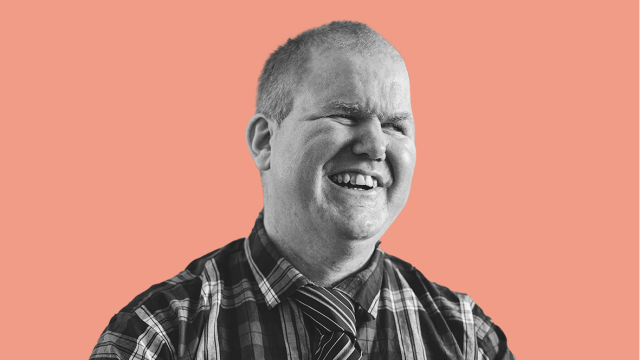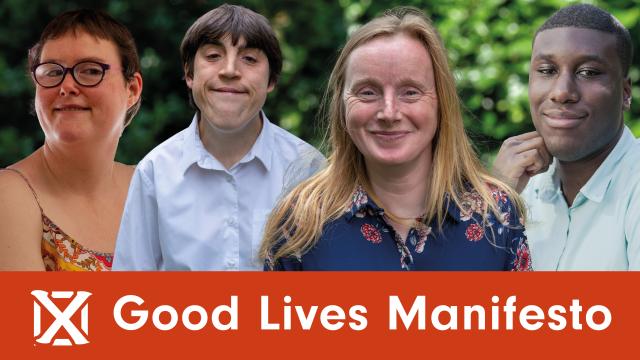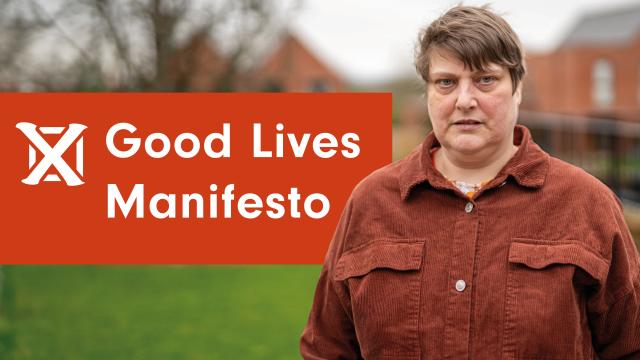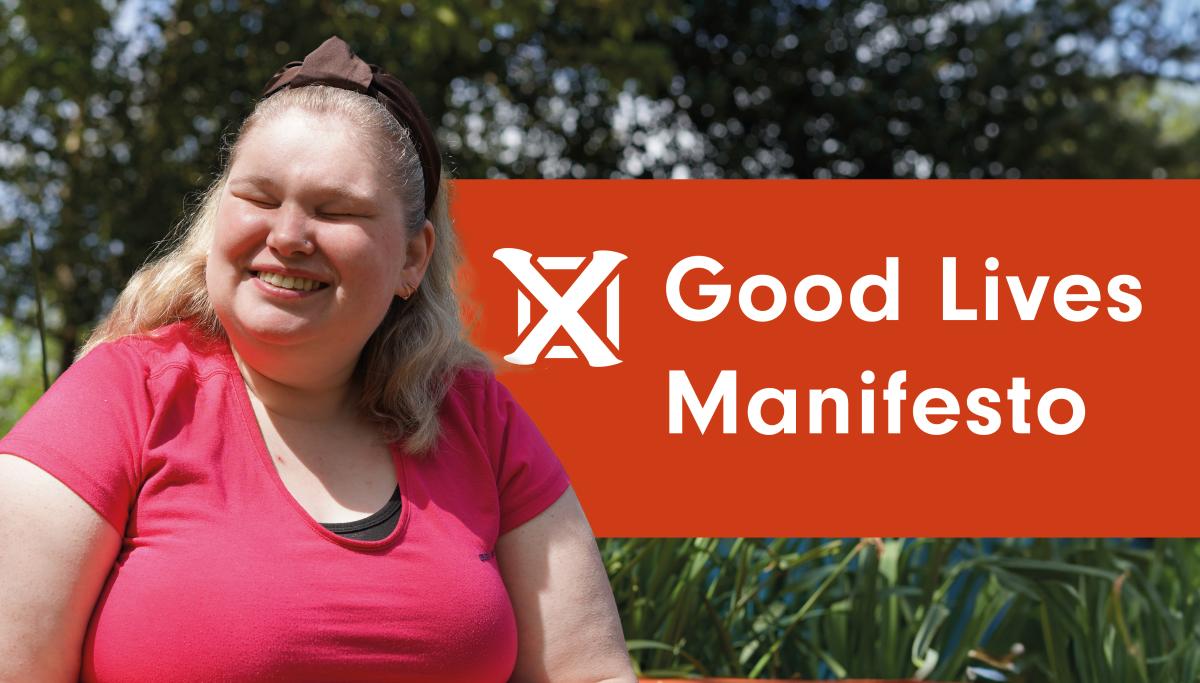
Good Lives Manifesto: We want to talk about social care!
This is the final blog in the series from the Listen Up! Team on the six key calls in The Good Lives Manifesto.
In some ways we have saved one of the most important issues of the day to last – that of social care. In the run up to this general election, it has felt like social care isn’t being spoken about enough, or when it is, it is portrayed as just another headache for the NHS. It is so often lumped together with hospital discharge , where older people who need care cannot hospital. The discussion focuses heavily on care for elderly people. How often do social care articles come with a photo of a younger pair of hands resting on an older pair?
Social care is so much more! Despite its portrayal in the media, half of council social care funding is spent on supporting working age people. This is so often forgotten in the discussions around social care.
Emily and Jo of the Listen Up! Team explain why social care is so important to their lives, and why the next government has to put more value on it.
For Jo, social care is about supporting her to live a full and happy life. She says:
“I could not do very much if I didn’t have the support that I do. I need support with going out and making choices. I feel safe with my support and happy that they can help me with anything that I ask. They support me with my relationships and I would not have the opportunities that I have now without social care support.”
Emily feels her support team are like a family:
“I feel good and have good conversations with my support team. I feel safe, secure and loved. I feel appreciated when I am cared for to a high standard.”
But both recognise that social care support workers are not being valued by society. The poor funding of social care means support workers are not paid a wage that fully recognises their value. High turnover, in this environment, is inevitable.
Emily knows first hand how valuable support workers are:
“It is important that the right sort of person is employed to support us. Someone that wants to get to know you and has the right skills and abilities to want to understand me.”
These roles are highly skilled but it is well known that social care is losing staff to other areas of the economy that can pay better – such as hospitality or retail.. Support workers are some of the most passionate and dedicated people in employment, but in a cost of living crisis, it comes down to simple economics. Social care organisations cannot compete without better funding.
For people like Emily, retaining good support workers is vital to her feeling safe in her own home.
“There is a need for better pay for support workers to enable them to stay in the job, this would give consistency for people that live with supported care and allow them to feel safe and secure.”
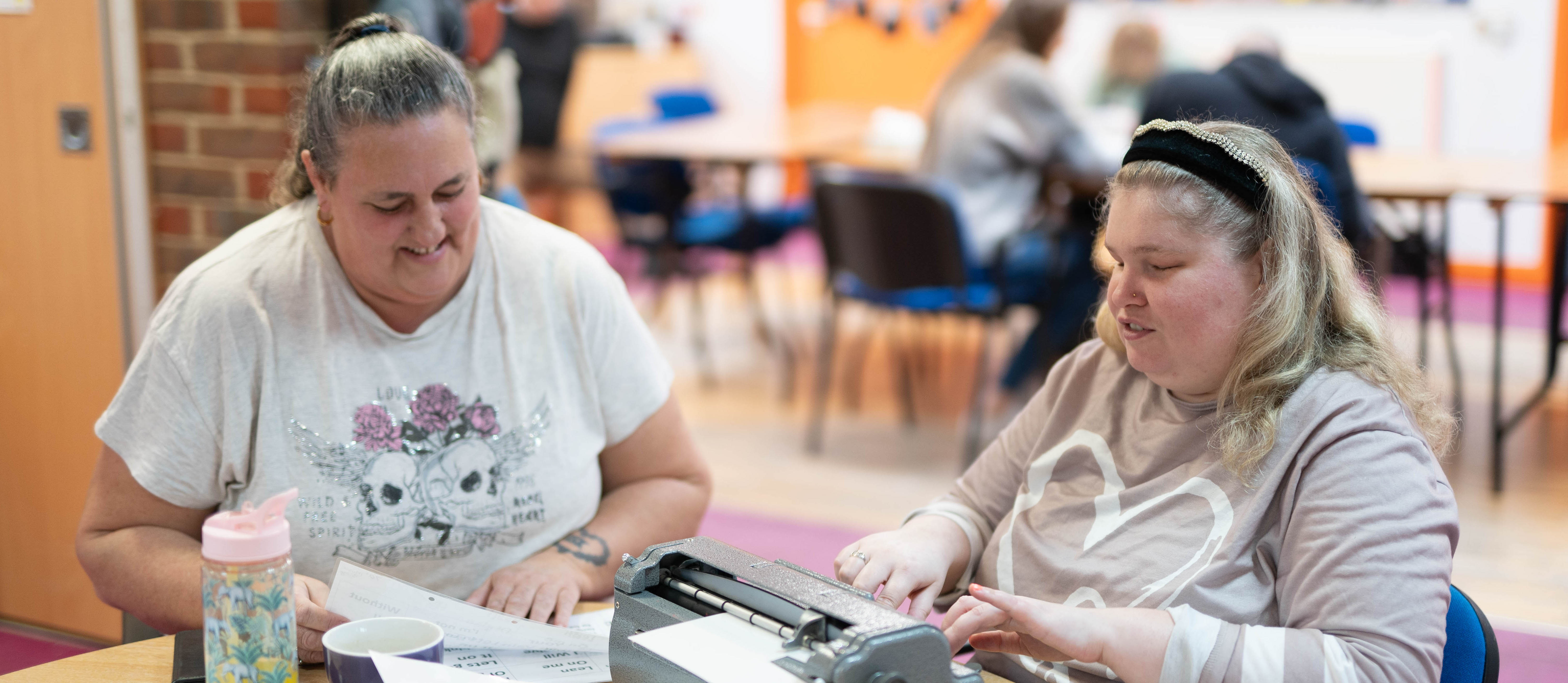
SeeAbility is now a real living wage employer, but funding for social care is not keeping pace with the need to properly reward the 1.5 million people who work in social care. There are 152,000 vacancies in social care, yet there is no workforce strategy for this vital service.
The Good Lives Manifesto is calling for an immediate uplift to pay, funded by the government, so frontline care and supporter workers receive at least the midpoint of the hourly ‘basic pay’ level of NHS Band 3 staff in 2024/25. It’s not just us calling for this - 70% of the public support this call to action.
Ultimately though, pay is just part of the picture.
Social care is critical to disabled people’s lives and needs to be valued in a different way. It is not just about personal care or propping up the NHS, but about support to live a good life, to go to work, to start a family, and much, much more.
We need to start again, and rethink attitudes towards social care. Instead of speaking about social care as an ‘issue’ that is permanently in crisis, the Social Care Futures movement is calling for a different, more positive vision for what it can achieve. It’s time to change the story, and boldly imagine the incredible things social care can achieve.
What are Emily and Jo’s final thoughts for candidates standing this election?
Emily says:
“Listen to me and the people that social care affects every day and take notice of our voices. We are the people that matter.”
Jo says:
“Listen up and take notice. Change the way you treat social care and support workers. Increase pay and conditions quickly before it’s too late.”
Read more on social care in SeeAbility’s policy position statement (easy read and plain text)
Read more from Social Care Futures and add your name to this growing movement.


